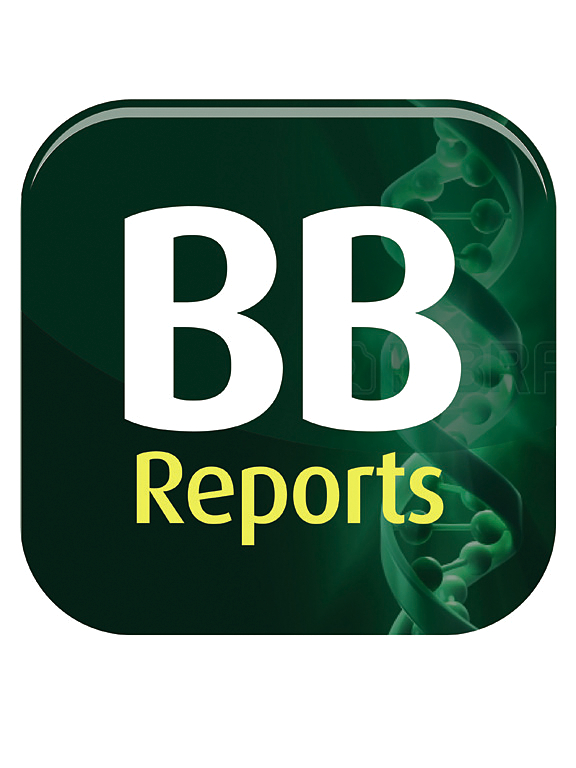SLC16A3 (MCT4) expression in tumor immunity and Metabolism: Insights from pan-cancer analysis
IF 2.3
Q3 BIOCHEMISTRY & MOLECULAR BIOLOGY
引用次数: 0
Abstract
Background
SLC16A3, a highly expressed H + -coupled symporter, facilitates lactate transport via monocarboxylate transporters (MCTs), contributing to acidosis. Although SLC16A3 has been implicated in tumor development, its role in tumor immunity remains unclear.
Methods
A pan-cancer analysis was conducted using datasets from The Cancer Genome Atlas, Cancer Cell Line Encyclopedia, and Genotype-Tissue Expression projects. SLC16A3 expression patterns and associations with tumor progression, prognosis, immune checkpoints, and immune neoantigens were evaluated across 30 cancer types. Immune infiltration scores were analyzed using the Tumor Immune Estimation Resource dataset.
Results
SLC16A3 expression is differentially regulated in cancer versus healthy tissues, with elevated levels associated with poor prognosis and reduced overall survival in glioblastoma multiforme (HR = 1.88), low-grade gliomas (HR = 1.51), and lung adenocarcinoma (HR = 1.33). Notably, significant associations between SLC16A3 expression and poor outcomes were observed in 33 cancers, except for rectum adenocarcinoma, testicular germ cell tumors, pheochromocytoma and paraganglioma, and adrenocortical carcinoma. SLC16A3 expression was also strongly linked to immune checkpoints and neoantigens. Correlations with tumor-infiltrating immune cells were pronounced in prostate adenocarcinoma but absent in uterine carcinosarcoma and cervical squamous cell carcinoma. Gene set enrichment analysis (GSEA) revealed a pivotal role of SLC16A3 in tumor growth, metabolism, and immunity.
Conclusion
SLC16A3, the transporter facilitating the efflux of lactic acid, shows differential expression across various cancer types and exerts a critical effect on tumor development and immunity. Thus, SLC16A3 has promising potential as a prognostic marker, and its targeted manipulation can offer therapeutic advantages.
SLC16A3 (MCT4)在肿瘤免疫和代谢中的表达:来自泛癌分析的见解
slc16a3是一种高表达的H +偶联同向转运体,通过单羧酸转运体(mct)促进乳酸的转运,从而导致酸中毒。虽然SLC16A3与肿瘤发生有关,但其在肿瘤免疫中的作用尚不清楚。方法利用Cancer Genome Atlas、Cancer Cell Line Encyclopedia和Genotype-Tissue Expression项目的数据集进行泛癌分析。在30种癌症类型中评估SLC16A3表达模式及其与肿瘤进展、预后、免疫检查点和免疫新抗原的关系。使用肿瘤免疫估计资源数据集分析免疫浸润评分。结果slc16a3在肿瘤组织与健康组织中的表达存在差异,在多形性胶质母细胞瘤(HR = 1.88)、低级别胶质瘤(HR = 1.51)和肺腺癌(HR = 1.33)中,slc16a3表达水平升高与预后不良和总生存率降低相关。值得注意的是,除了直肠腺癌、睾丸生殖细胞瘤、嗜铬细胞瘤和副神经节瘤以及肾上腺皮质癌外,在33种癌症中观察到SLC16A3表达与不良预后之间的显著关联。SLC16A3的表达也与免疫检查点和新抗原密切相关。前列腺癌与肿瘤浸润性免疫细胞有明显的相关性,而子宫癌、肉瘤和宫颈鳞状细胞癌与肿瘤浸润性免疫细胞无相关性。基因集富集分析(GSEA)揭示了SLC16A3在肿瘤生长、代谢和免疫中的关键作用。结论促进乳酸外排的转运蛋白slc16a3在不同肿瘤类型中表达差异,对肿瘤的发展和免疫具有重要作用。因此,SLC16A3作为预后标记物具有良好的潜力,其靶向操作可以提供治疗优势。
本文章由计算机程序翻译,如有差异,请以英文原文为准。
求助全文
约1分钟内获得全文
求助全文
来源期刊

Biochemistry and Biophysics Reports
Biochemistry, Genetics and Molecular Biology-Biophysics
CiteScore
4.60
自引率
0.00%
发文量
191
审稿时长
59 days
期刊介绍:
Open access, online only, peer-reviewed international journal in the Life Sciences, established in 2014 Biochemistry and Biophysics Reports (BB Reports) publishes original research in all aspects of Biochemistry, Biophysics and related areas like Molecular and Cell Biology. BB Reports welcomes solid though more preliminary, descriptive and small scale results if they have the potential to stimulate and/or contribute to future research, leading to new insights or hypothesis. Primary criteria for acceptance is that the work is original, scientifically and technically sound and provides valuable knowledge to life sciences research. We strongly believe all results deserve to be published and documented for the advancement of science. BB Reports specifically appreciates receiving reports on: Negative results, Replication studies, Reanalysis of previous datasets.
 求助内容:
求助内容: 应助结果提醒方式:
应助结果提醒方式:


